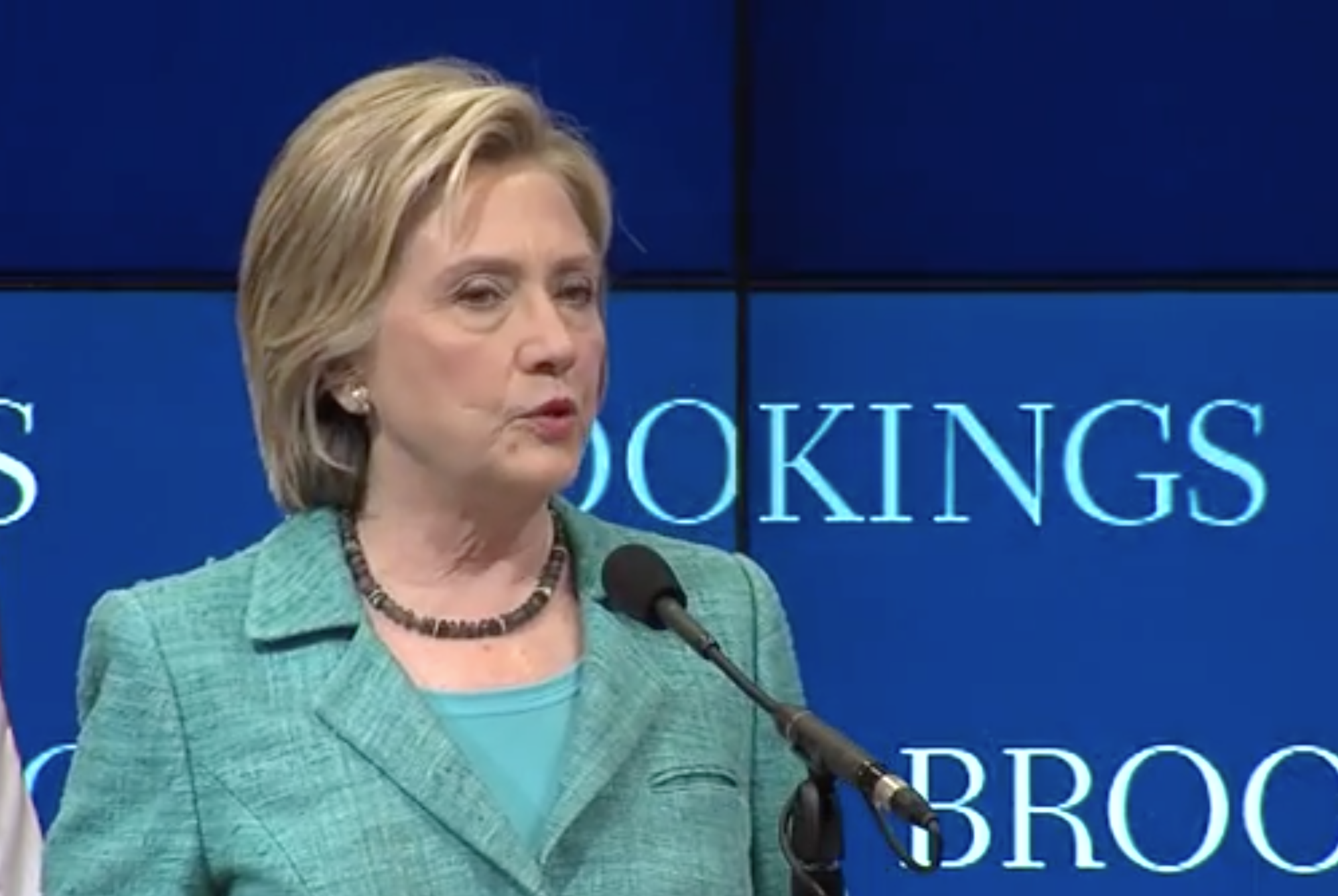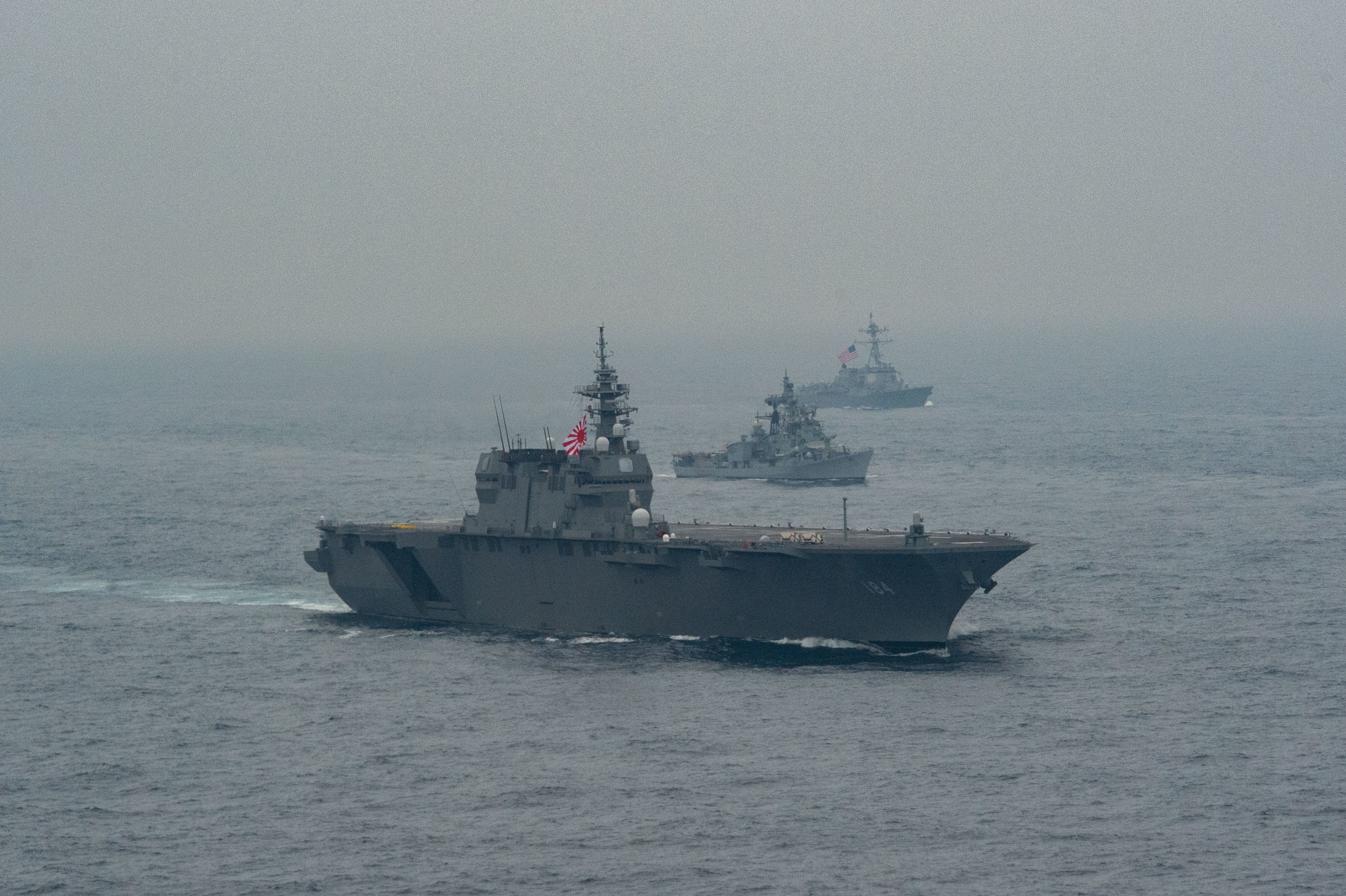
Speaking at the Brookings Institution in Washington, D.C., she said, “We absolutely should not turn it down.” With 41 Democratic senators saying they plan to support the agreement, President Barack Obama has enough support to sustain a veto if Congress does not back it, and also enough to block a Senate vote on the resolution to block a resolution rejecting it.
The agreement requires Iran’s dismantling most of its nuclear program for at least a decade before lifting economic sanctions and the reopening of Iranian financial accounts frozen in the United States and Europe. There also are two annexes to the agreement reached between the U.N. monitoring agency and Iran that have not been made public and have provided a rallying point for opponents of the pact.
Clinton, who is seeking the Democratic nomination for president, said if she were elected, “I’ll hold the line” and apply “snap-back sanctions if necessary” against Iran for violating the agreement’s terms. She added that she would ensure that the International Atomic Energy Agency would have the necessary resources to monitor and inspect Iranian facilities.
“We should anticipate that Iran will test the next president. They’ll want to see how far they can bend the rules,” she said. “I’ll hold the line against Iran noncompliance”—including taking military action.
Clinton said she would ensure that Israel’s military retained a quantitative edge over Iran. Among the weapon systems she mentioned was the sale of the F-35 strike/fighter to Israel. “Now is the time [for Israel and the United States] to come together,” she said.
Earlier this year, Israeli Prime Minister Benjamin Netanyahu addressed a joint session of Congress and denounced the agreement.
Clinton also wants to reassure Gulf allies and partners that the “Persian Gulf is a region of national interest” to the United States. She specially cited keeping the Strait of Hormuz open to international trade and maintaining a strong American naval and air presence there.
The Republican Take
Across town, shortly after Clinton spoke, Rep. Mike Pompeo, (R-KS), said, the “secret side deals” between the U.N. monitoring agency and Iran were particularly troubling to him as a member of the House Intelligence Committee.
Speaking at the Heritage Foundation, a Washington, D.C., think-tank, he added, “The American people oppose it by 2-to-1. It’s a bad deal.” The most recent Pew Poll showed slightly more than 20 percent of the public now back it.
Pompeo, a U.S. Military Academy graduate, said “All it takes is [a clause beginning in the annexes] ‘Not withstanding'” to keep the monitors from inspecting any military sites.”
In a panel discussion following Pompeo’s remarks, Paula DeSutter, who worked on treaty verification in the State Department, the position to start from is: Assume “the other side is cheating.” She said she found the public sections of the agreement to be “deliberately confusing” when it came to verification. The agreement “doesn’t have a ‘thou shall not'” provision clearly delineating what is acceptable and what is a violation.
DeSutter used the removal of weapons of mass destruction from Libya as a case where inspectors could go anywhere at any time and led the Libyans to taking them to sites that the monitors hadn’t known about.
About the Iranians, she added, “Any place they are hiding things they will call it a military facility” and keep the inspectors out, as they did earlier.
“You need to look at past compliance,” she said. Iran is “probably among the worst violators, second only to Russia.”
Mark Dubowitz, executive director of the Foundation for Defense of Democracies, said the agreement offers Tehran “a pathway [to build a nuclear weapons and ballistic-missile program] even if it complies with the deal.”
He cited the first restrictions ending in five years, arms embargo being lifted in eight and at the end of decade Iran would be in position to break out as a nuclear power within three months rather than the year the administration said it would take.
The United States “needs to be clear what our red lines are,” such as developing fissile material, in deciding what constitutes a violation, Matthew Kroening, an associate professor at Georgetown University, said.
“The agreement doesn’t fundamentally alter Iran’s strategic focus” of destroying Israel and confronting the United States, Michaela Dodge of Heritage said.
Pompeo said that in Congress, “we will certainly keep working” to put sanctions back in place and to have the Iranian Revolutionary Guard, like its Quds Force, declared an international terrorist organization.





